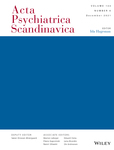Toward staging differentiation for posttraumatic stress disorder treatment
Abstract
Objectives
Several medical and psychiatric disorders have stage-based treatment decision-making methods. However, international treatment guidelines for posttraumatic stress disorder (PTSD) fail to give specific treatment recommendations based on chronicity or stage of the disorder. There is convincing evidence of a finite range of PTSD symptom trajectories, implying that different phenotypes of the disorder can be distinguished, which are highly relevant for a staging typology of PTSD.
Methods
State-of-the-art review building on prior work on staging models in other disorders as a mapping tool to identify and synthesize toward PTSD.
Results
We propose a four-stage model of PTSD ranging from stage 0: trauma-exposed asymptomatic but at risk to stage 4: severe unremitting illness of increasing chronicity. We favor a symptom description in various chronological characteristics based on neurobiological markers, information processing systems, stress reactivity, and consciousness dimensions. We also advocate for a separate phenomenology of treatment resistance since this can yield treatment recommendations.
Conclusion
A staging perspective in the field of PTSD is highly needed. This can facilitate the selection of interventions that are proportionate to patients' current needs and risk of illness progression and can also contribute to an efficient framework to organize biomarker data and guide service delivery. Therefore, we propose that a neurobiologically driven trajectory-based typology of PTSD can help deduct several treatment recommendations leading to a more personalized and refined grid to strategize, plan and evaluate treatment interventions.

 求助内容:
求助内容: 应助结果提醒方式:
应助结果提醒方式:


